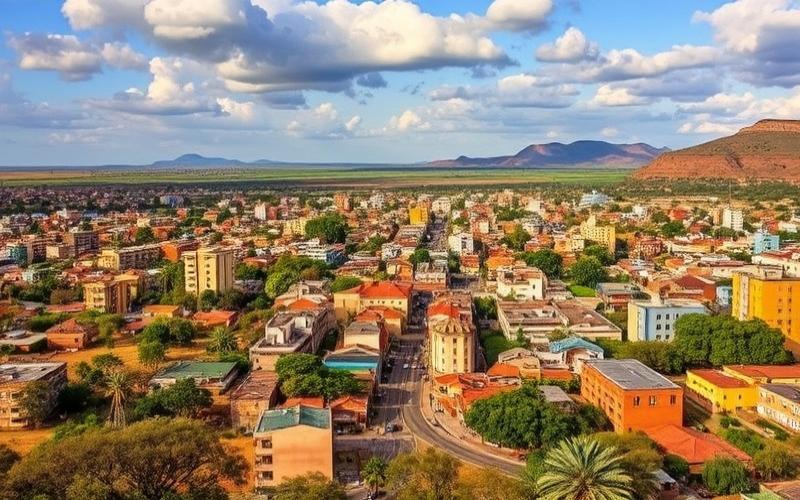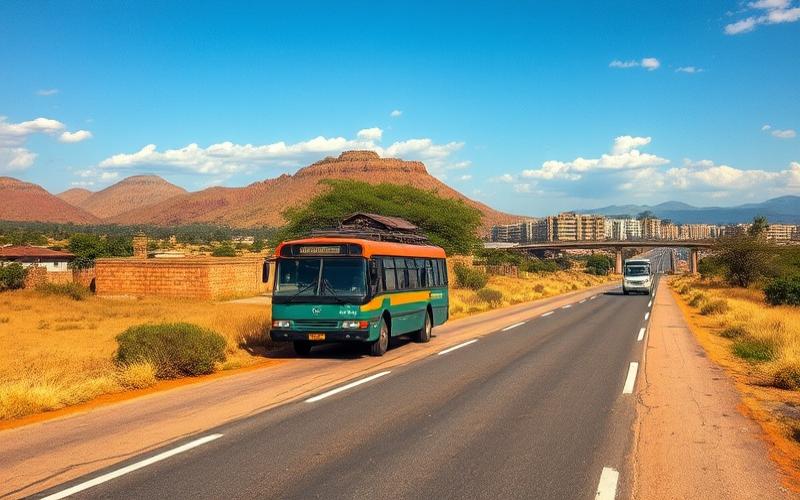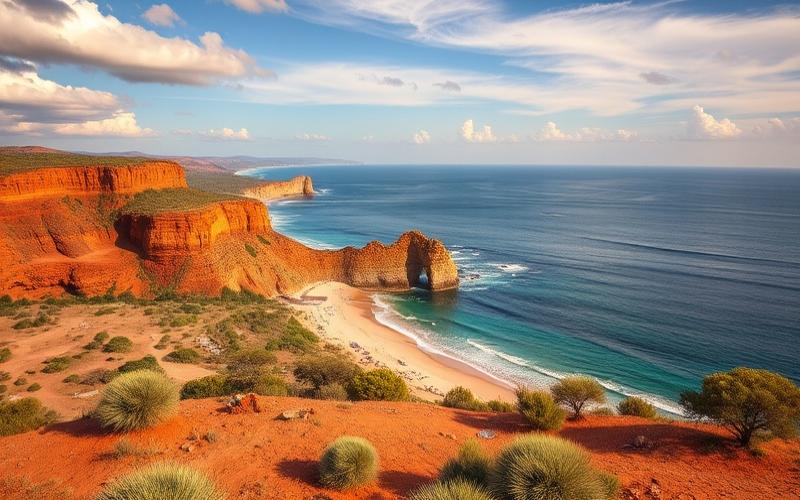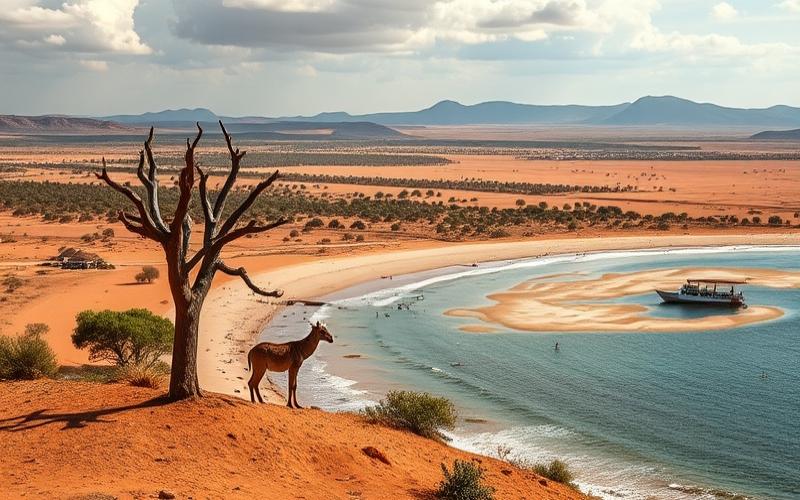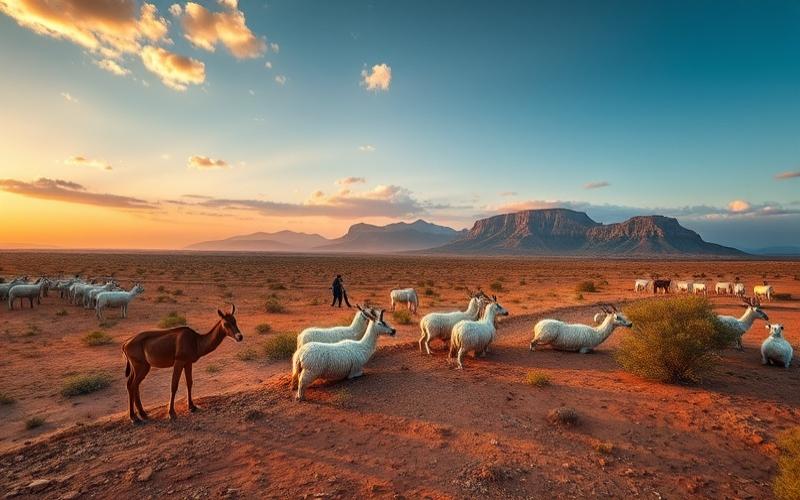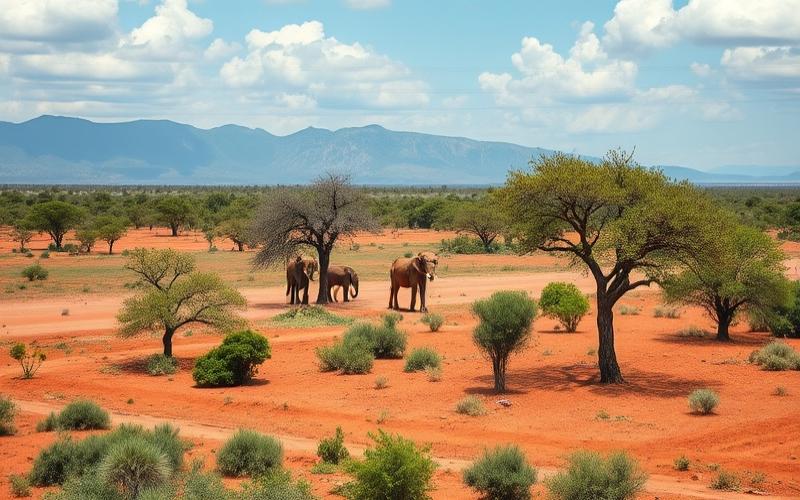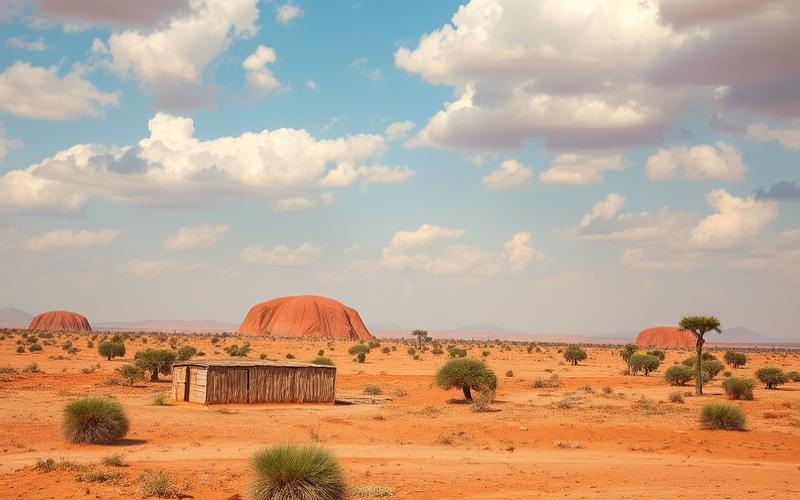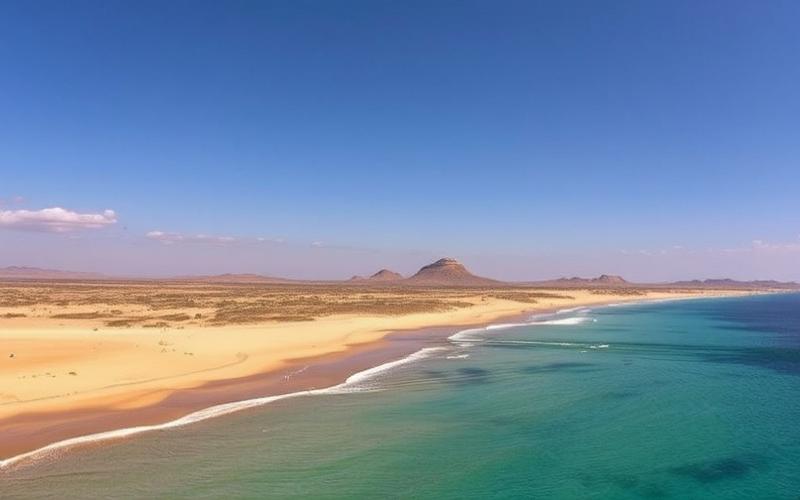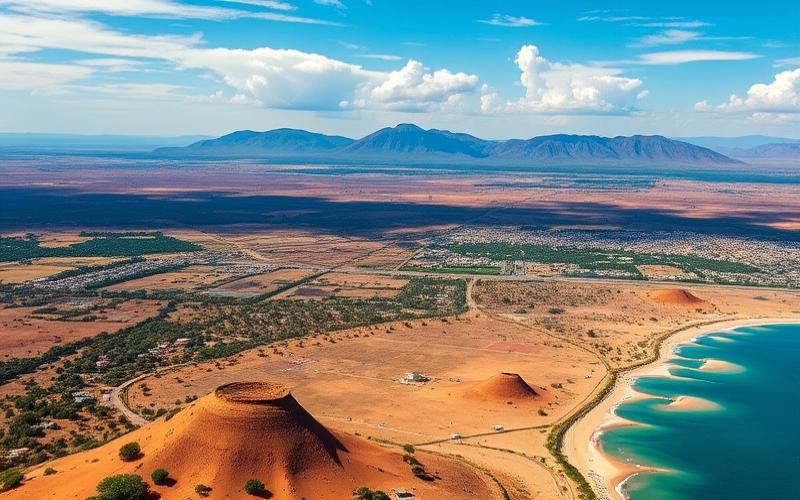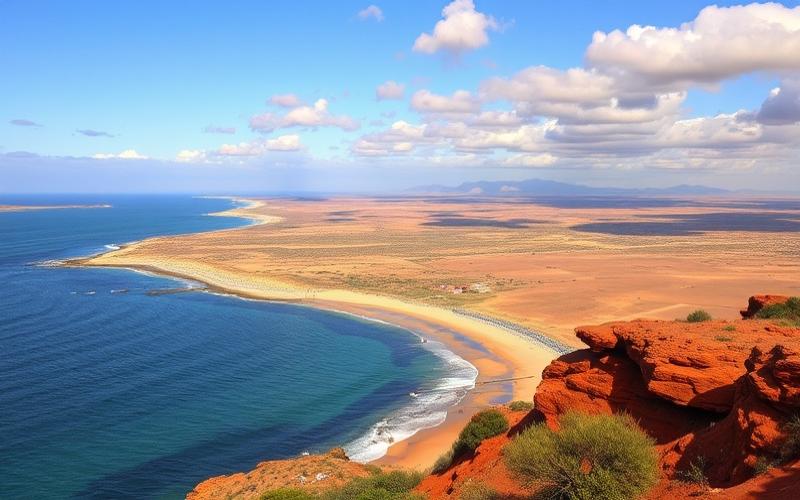
 Published on and written by Cyril Jarnias
Published on and written by Cyril Jarnias
Diving into the world of international schools in South Africa offers a fascinating perspective on world-class education combined with rich cultural diversity. These prestigious institutions, scattered across the country, captivate with their commitment to academic excellence and innovative programs that meet international standards.
From a global curriculum to inclusive learning environments, each school provides a unique experience, making South Africa a top destination for families seeking to give their children a competitive edge on the global stage.
Discovering which institutions stand out among the best international schools will open the door to unparalleled learning opportunities in this dynamic and ever-evolving country.
International Schools in South Africa: A Choice of Excellence
International schools in South Africa, emerging from the country’s complex historical context, now represent a choice of excellence for many local and expatriate families.
History of International Schools
- The first European schools were established in the late 17th century in the Cape Colony.
- During apartheid, education was segregated, but independent institutions continued to offer quality education with an international focus, often based on European or American models.
- After apartheid, democratization allowed for increased openness, strengthening the presence of international schools welcoming students from all backgrounds.
Reasons for Choosing Excellence
- Superior Educational Quality: International schools prioritize active and individualized methods, with small class sizes and rigorous supervision.
- Highly Qualified Teaching Staff: International recruitment, often with native or foreign-trained teachers.
- Material Resources: Modern infrastructure, laboratories, libraries, high-level sports facilities.
Curriculums Offered
| Program | Description | Examples of Schools in South Africa |
|---|---|---|
| International Baccalaureate (IB) | Globally recognized program focused on critical thinking, research, and international openness | International School of Cape Town, Redhill School |
| Cambridge International | British system, IGCSE and A-Level exams, recognized by universities worldwide | St John’s College, St Mary’s School |
| American Programs | Based on AP or High School Diploma, preparation for U.S. universities | American International School of Johannesburg |
Cultural and Linguistic Diversity
- Mosaic of International Students: Children of diplomats, expatriates, South African families prioritizing openness.
- Languages of Instruction: Primarily English, but some schools also offer French, German, Afrikaans, and even Mandarin.
- Rich School Life: Multicultural celebrations, language clubs, international exchanges.
Opportunities for International Higher Education
- Globally Recognized Accreditations: IB and Cambridge diplomas open doors to prestigious universities worldwide.
- Personalized Guidance: Counselors specialized in international admission procedures, test preparation (SAT, IELTS…).
- Alumni Networks: Facilitate internships, integration, and access to scholarships abroad.
Positive Contributions to the Local Community
- Educational Partnerships: Support for neighboring public schools, tutoring projects, and material donations.
- Social Engagement: Volunteer initiatives, fundraising, actions promoting diversity and inclusion.
- Cultural Openness: Organization of festivals, conferences, and workshops open to the community.
Criteria for Choosing the Best International School
- Curriculum Compatibility with future study plans.
- Campus Safety and Accessibility.
- School Atmosphere and educational values.
- Extracurricular Activities offered.
- Reputation and Official Accreditations.
Examples and Testimonials
“We chose an IB school in Johannesburg for our son. His open-mindedness and ability to speak in public have significantly developed. He was admitted to a university in Europe without difficulty.”
— French Expatriate Parent
“I appreciate the diversity of my classmates: we come from all continents, and it makes every day unique.”
— Student, 10th Grade IB
“Robotics clubs and community engagement allowed me to discover passions and develop skills that will serve me in university.”
— Student, Cambridge A-Levels
| Key Takeaway |
|---|
| Choosing an international school in South Africa should be based on thorough consideration of the family’s plans, the child’s aspirations, and the compatibility of programs with international academic ambitions. Visiting schools, meeting educational teams, and consulting with other families are essential steps to make the best choice. |
Good to Know:
Choosing an international school in South Africa can provide privileged access to programs like the IB or Cambridge, thereby facilitating admission to prestigious global universities, while enriching the educational experience through unique cultural and linguistic diversity.
Among the Best: Our Selection of International Schools
Selection Criteria for Evaluating and Ranking the Best International Schools in South Africa:
- Academic Reputation and International Recognition
- Type of Educational Program Offered (IB, A-levels, French or American programs)
- Languages of Instruction
- Accreditations and International Partnerships
- Quality of Infrastructure (laboratories, libraries, sports facilities, digital equipment)
- Cultural Mix and Diversity of the Student Population
- Parent/Student Testimonials and Feedback
- Range of Extracurricular Activities
- Geographic Location and Accessibility
- Tuition Costs and Availability of Places
| Criterion | Description |
|---|---|
| Reputation | Rankings, reviews from expatriate families, affiliation with global school networks |
| Academic Programs | IB, A-levels, French program, American program, etc. |
| Infrastructure | Modernity of buildings, sports equipment, laboratories, libraries |
| Languages of Instruction | English, French, German, other languages |
| Accreditations | IB, Cambridge, AEFE, CIS, other international bodies |
| Diversity and Openness | Diversity of the student population, multicultural environment |
| Activities | Sports, arts, clubs, trips, international projects |
| Testimonials | Authentic feedback from parents and students |
| Location | Proximity to secure residential areas, accessibility |
| Cost and Admission | Tuition fees, selectivity, availability of places |
Detailed Descriptions of Some Reference International Schools
| School | Location | Program(s) | Languages of Instruction | Accreditations/Partnerships | Infrastructure and Activities | Distinctive Features |
|---|---|---|---|---|---|---|
| Lycée Français Jules Verne | Johannesburg | French Program (AEFE) | French, English | AEFE, French Ministry of Education | Library, laboratories, gymnasium, swimming pool, theater, cultural and sports clubs | Strong Francophone community, international openness, preparation for the French Baccalaureate |
| St John’s College | Johannesburg | Cambridge (A-levels), IEB | English | Cambridge International, ISASA | Sports fields, swimming pool, science laboratories, visual arts, music, boarding | Tradition of academic excellence, British discipline, influential alumni |
| International School of Cape Town | Cape Town | Cambridge (IGCSE, A-levels) | English, French (optional) | Cambridge International | Modern facilities, sports fields, STEM clubs, theater, school excursions | Personalized teaching, multicultural approach |
| American International School of Johannesburg | Johannesburg & Pretoria | American Program, IB | English, French (optional) | IB, CIS, NEASC | Green campus, laboratories, multi-sport fields, arts, various clubs | Cultural diversity, preparation for American universities, active pedagogy |
Examples of Extracurricular Activities Offered:
- Soccer, rugby, swimming, cricket, tennis
- Theater, choir, orchestra
- Debates, STEM clubs, robotics, coding
- International educational trips
- Language clubs and artistic workshops
Parent/Student Testimonials and Reviews:
“The multicultural environment of the French lycée allowed our children to adapt easily and maintain their French level while becoming bilingual.”
“The sports facilities at St John’s are impressive; our children benefit from high-level academic and sports support.”
“The American school offers real individualized follow-up, and the global openness is felt in all school projects.”
What Distinguishes Each Institution in the South African Educational Context:
Lycée Français Jules Verne stands out for its connection to the AEFE network, ensuring educational continuity for Francophone families and great international openness.
St John’s College is recognized for the rigor of its British program, the excellence of its alumni, and its traditions, while fostering leadership and autonomy.
The International School of Cape Town prioritizes diversity and personalized teaching, offering an environment conducive to individual development.
The American International School of Johannesburg attracts with its American and IB pedagogy, cultural mix, and global university partnerships, effectively preparing for international mobility.
In Summary
The best international schools in South Africa are distinguished by their linguistic diversity, the quality of their programs, modern infrastructure, and strong international grounding. The multicultural environment, varied activities, and attention to each student contribute to their appeal for expatriate and local families.
Good to Know:
The linguistic diversity and international accreditations of schools, such as IB or Cambridge, are key criteria in our selection of international schools in South Africa. Do not overlook alumni reviews, which often praise the modern infrastructure and expanded sports programs.
Investing in Your Children’s Education: A Cost Analysis
Investing in your children’s education in South Africa involves a detailed analysis of the costs and benefits associated with each type of institution.
| Type of School | International School (Primary) | Private/Public University | International High School |
|---|---|---|---|
| Average Annual Cost | €3,797.83 (80,773 ZAR) | 59,602 ZAR (~€2,800-4,000) | From €15,900 per year |
| Price Range | €1,645.64 – €7,052.73 | Bachelor’s: from 48,700 ZAR | Term from €8,900, semester from €11,250 |
| Examples of Institutions | Redhill School, St John’s College | University of Cape Town | Programs with host families |
International schools show a higher cost compared to local South African schools. For example:
- Local public school: generally free or very affordable for residents.
- Private international school: several thousand euros per year.
Advantages Offered by International Schools
- Multilingual teaching and globally recognized curriculum
- Easier access to foreign universities
- Better preparation for multicultural environments
List of Potential Additional Costs
- School uniform fees (between €300 and €350, initial purchase)
- Supplies and textbooks not included in tuition
- School or private transport depending on residence location
- Extracurricular activities such as sports, arts, or educational outings (€150 to €250/month for personal expenses)
The importance of investing in quality education is reflected in the child’s professional future:
A solid education facilitates access to the best global universities, develops critical thinking, and promotes international professional success.
Practical Tips for Planning This Type of Investment
- Start early with family budget planning, including all additional costs.
- Open a dedicated savings account for schooling.
- Create an annual budget forecast with adjustments based on the chosen curriculum.
- Explore the following options:
- Apply for scholarships from international institutions or through external organizations.
- Check if some institutions offer payment plans spread over the school year.
- Research specific government aid for foreign or local students.
Choosing an international school is a strategic investment that can lastingly transform your child’s academic and professional path. Rigorous financial preparation is essential so that this commitment remains beneficial without becoming a major source of family stress.
Good to Know:
Tuition fees at top-tier international schools in South Africa can reach 300,000 ZAR per year, not including additional costs for uniforms and extracurricular activities; however, these institutions often offer scholarship opportunities and financing options to ease the financial burden on parents.
Disclaimer: The information provided on this website is for informational purposes only and does not constitute financial, legal, or professional advice. We encourage you to consult qualified experts before making any investment, real estate, or expatriation decisions. Although we strive to maintain up-to-date and accurate information, we do not guarantee the completeness, accuracy, or timeliness of the proposed content. As investment and expatriation involve risks, we disclaim any liability for potential losses or damages arising from the use of this site. Your use of this site confirms your acceptance of these terms and your understanding of the associated risks.




